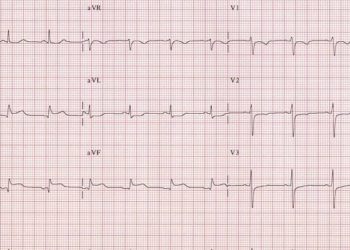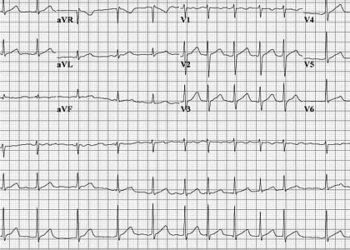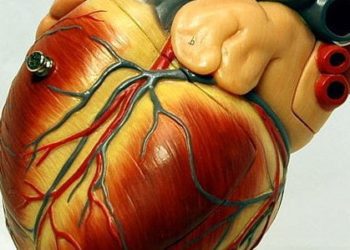The MADIT-II trial: Prophylactic defibrillators improve survival in patients with myocardial infarction and left ventricular dysfunction
Image: CC/L. academia
1. This trial found a 31% reduction in risk of death associated with implantation of a defibrillator compared to conventional therapy.
2. Rates of hospitalization with heart failure were somewhat higher in the defibrillator group, though this did not reach significance.
Study Rundown: Prophylactic implantation of a defibrillator may improve survival in patients with previous myocardial infarction and left ventricular dysfunction. The results of this trial indicate that an implantable defibrillator may significantly improve outcomes along with appropriate drug therapy. Of concern was the higher rate of hospitalization with heart failure in the defibrillator group. Further investigations, including electrophysiologic testing, as inclusion criteria may help to determine the specific groups for whom implantation of a defibrillator will be most beneficial with minimal risk.
In sum, implantation of a defibrillator should be considered in patients with myocardial infarction and reduced ejection fraction as a prophylactic measure for sudden cardiac death.
Please click to read study in NEJM
In Depth [randomized controlled study]: Published in NEJM in 2002, the MADIT-II trial assessed the survival benefit of prophylactic defibrillator implantation in patients with previous myocardial infarction and an ejection fraction of 0.30 or less. A total of 1,232 patients were assigned to receive an implantable defibrillator or to conventional medical therapy in a 3:2 ratio. After an average follow-up of 20 months, the trial found a significant 31% reduction in risk of death in the defibrillator group compared to the conventional therapy group. Subgroup analyses did not reveal any differences in this effect based on a number of factors, including age, gender, ejection fraction, and QRS interval. Serious complications associated with defibrillator therapy were uncommon, but of note was a slightly higher rate of hospitalization with heart failure in the defibrillator group compared to conventional therapy.
By Adrienne Cheung, Andrew Cheung, M.D.
© 2013 2minutemedicine.com. All rights reserved. No works may be reproduced without written consent from 2minutemedicine.com. Disclaimer: We present factual information directly from peer reviewed medical journals. No post should be construed as medical advice and is not intended as such by the authors or by 2minutemedicine.com. PLEASE SEE A HEALTHCARE PROVIDER IN YOUR AREA IF YOU SEEK MEDICAL ADVICE OF ANY SORT. Content is produced in accordance with fair use copyrights solely and strictly for the purpose of teaching, news and criticism. No benefit, monetary or otherwise, is realized by any participants or the owner of this domain.








